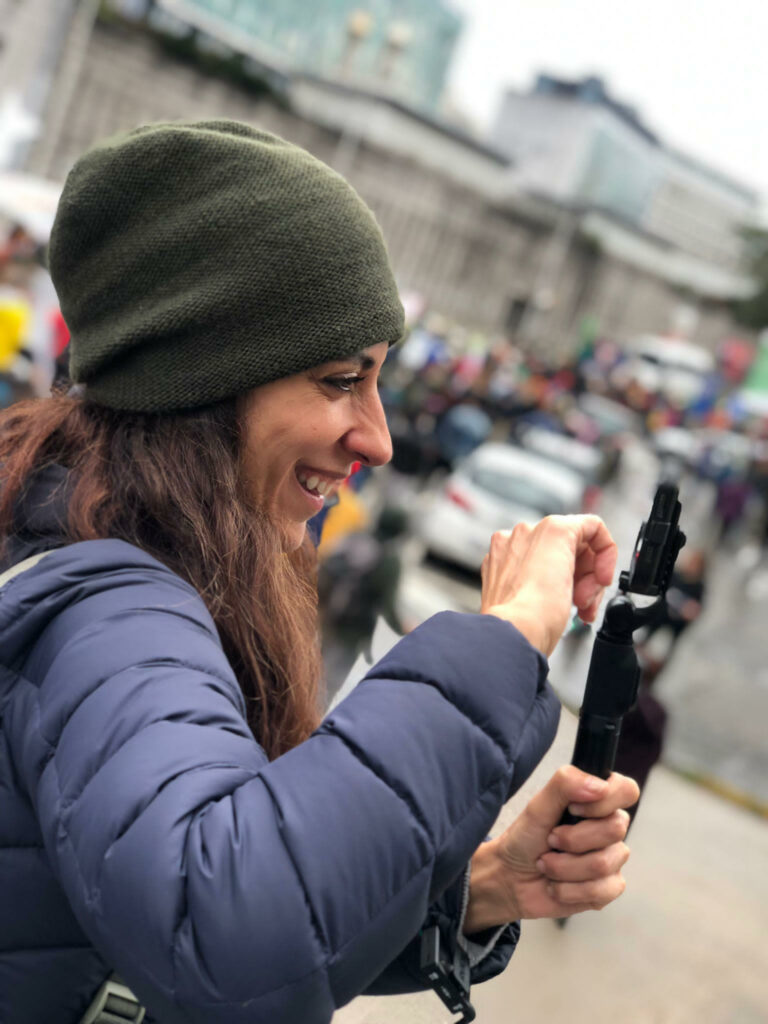It’s scary here. I can’t find my footing. I don’t feel the earth beneath me. I’m floating. Untethered. It’s a privilege to be here. To be a voyeur in people’s lives with my camera and tell their stories. To try and make meaning of what’s happened to them…of what happened to me. The road is murky. At times, I feel like turning back. To put everything down and walk away. To say I tried but failed. But there’s a voice inside that won’t let me – not loud, but clear. She whispers, “Keep going, keep going, you have no idea what’s coming…” And so, I listen. I pack my black carry-on full of the same four sweaters and the same two pairs of jeans. I fill my camera bag to the seams with equipment. I check in to another flight and save my boarding pass on my phone. Fill out my 100th passenger locator form to whatever country that’s asking for it and tell them I don’t have Covid symptoms – and I keep going. I take a picture of the sunrise when the plane takes off and another one of how the light’s changed on the clouds when we land. I listen to the same song with the Spanish guitar on my headphones – but over it, I still hear her whisper, “Keep going, keep going, you have no idea what’s coming…”

That blurb spilled out of me on a January morning heading out of the Copenhagen airport. It was snowing, and the California girl in me had just about had enough of her first real winter in northern Europe. Starting my Fulbright as a Schuman grantee, I knew and had prepared for how much travel my film and following refugee subjects in different countries would entail. There were moments I wanted to throw in the towel because it was too heartbreaking. There were moments when exhaustion set in, and I couldn’t see the story forming so clearly. That, in a way, I wasn’t so different from the protagonists in my film. They had all arrived in Europe, started new lives, and tried to acclimate to a new world around them. And I was doing the same in Belgium – moving to Ghent, registering with the Commune, getting a new resident ID, bank accounts, phone numbers, mailing address. All to have a new place to call home for a while.

During my grant, I had the privilege to follow subjects from Syria, the Democratic Republic of Congo, Nigeria, Afghanistan, Chechnya, and Cameroon. Men and women who left their homeland and trickled into Europe’s borders, hoping to start anew. I broke bread with them over meals from around the world. I fasted during Ramadan, shared Iftar, and understood the joy of tasting water after being without it for fifteen hours. There were moments of kinship and moments of pure helplessness in witnessing some of their circumstances. They trusted me in their most vulnerable space and allowed my camera’s eye to capture a brief moment in their lives. I will forever be humbled by their generosity with their time and trust. The road to completing the film is long and far, but when finished, I hope to have honored each of their stories.

My Fulbright experience has reaffirmed what I’ve always believed about the international community; the things we think make us different are actually the very things that make us the same. That after our essential needs are met, all we are looking for is a place to tell us, “I will hold you, I will protect you, I will keep you safe.”

So much gratitude for Belgium for keeping me for a year.
As the recipient of the 2021-2022 Fulbright scholarship to the European Union, Jhizet Panosian has spent the year filming her feature documentary on the aftermath of the European migration crisis. Her film will delve deep into the lives of three migrants from Palestine, Syria, and Cameroon, and focus on the intricacies of rebuilding a life after receiving asylum in Europe. As a former Armenian refugee from Iran, this subject matter is especially close to her heart. She is a graduate of the University of California, Santa Barbara and has a Bachelor of Arts in Film Studies.
Articles are written by Fulbright grantees and do not reflect the opinions of the Fulbright Commission, the grantees’ host institutions, or the U.S. Department of State.
